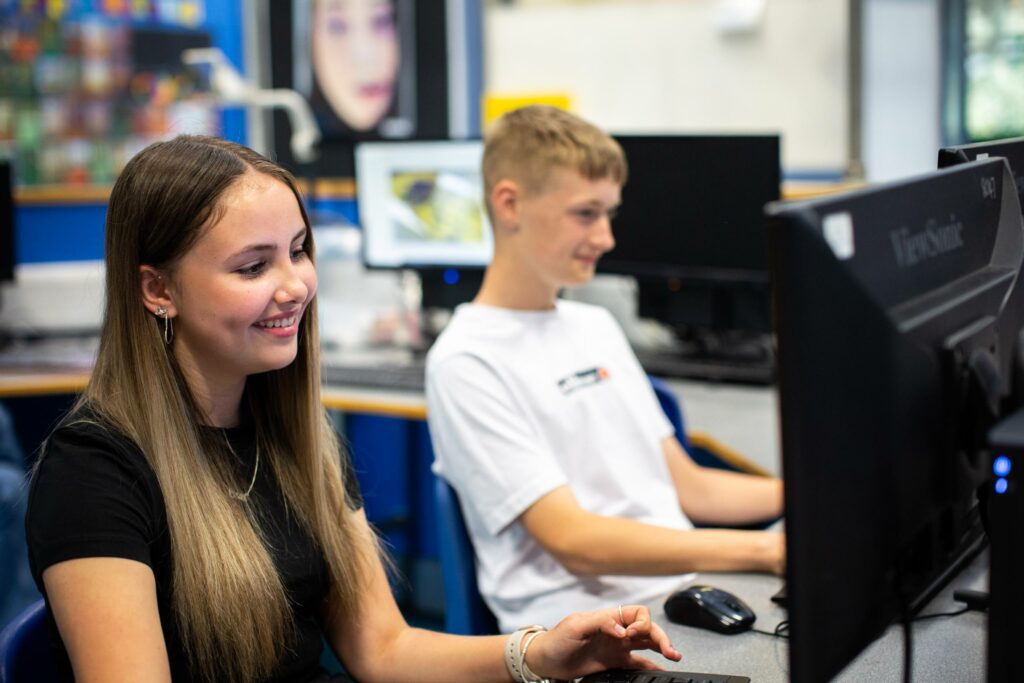GCSE Business
Examination Board: Edexcel
Course Code: 1BS0
Why are more people shopping online? Why are High Street shops closing? What impact is Brexit having on the UK economy? Why does things cost more in shops this year? These are just some of many, many key things that you will find out about by studying Business at GCSE.
Business is a subject that will give you an insight on how the world of work operates. It will give you an idea about the way businesses recruit employees, how and where they decide to sell their products and also the techniques and skills they employ in order to make a profit.
As part of the course, you will look at both the UK and Global Business environment. You will study topics including Marketing, Finance and Accounting, Human Resources, eCommerce, Retail/Selling and Laws/Legislations.
This is a very hands on and engaging course, and your lessons will be based within Computing rooms. You will build on your ongoing Computing skills within lessons using software applications such as spreadsheet, word processing and presentation. You will also be using the Internet as part of researching and investigating business. You will be looking at case studies and also have the opportunity to work within small groups within lesson. As part of your study you will look at real life business organisations
Assessment Structure
The course is assessed by 2 written examination papers which are taken at the end of Year 11.
Paper 1 : Investigating Small Business (1BS0/01) – 90 marks , 90 minutes, 50% towards the final GCSE grade.
Paper 2 : Building a Business (1BS0/02) – 90 marks, 90 minutes, 50% towards the final GCSE grade.
Both examinations are a standard tier paper.
Career Pathway
Students who study this course have the option of pursuing the course to Level 3 study at sixth form or college. There are also apprenticeship pathways available for students working within a business environment. This course can lead towards careers in accounting and finance, business administration, human resources, marketing, social media marketing, advertising, ecommerce and retail.
